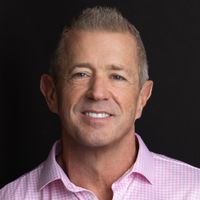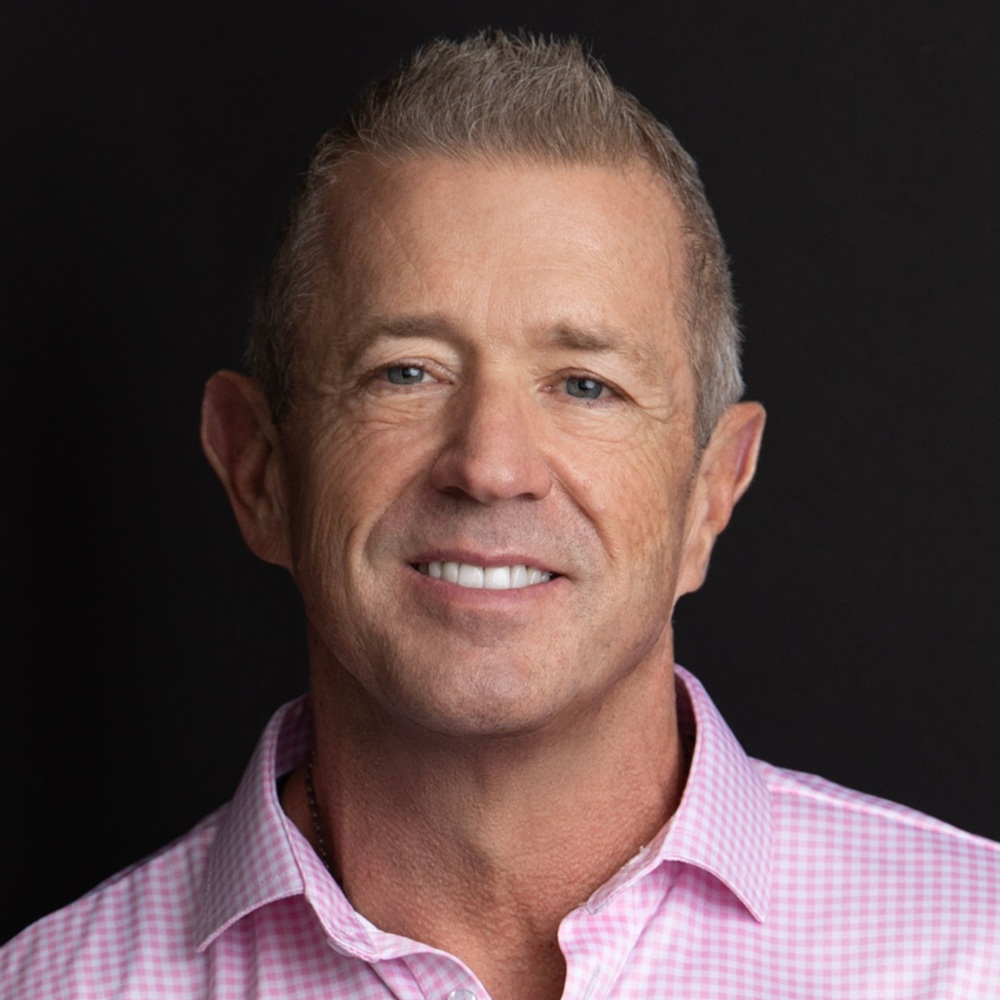What Are Qualified Opportunity Zones? Important Details for Investors
Investing in blighted or up-and-coming “opportunity zones” offers some significant tax-deferral opportunities, and if you hold your investment for 10 years, your gains could be 100% tax free.


Profit and prosper with the best of Kiplinger's advice on investing, taxes, retirement, personal finance and much more. Delivered daily. Enter your email in the box and click Sign Me Up.
You are now subscribed
Your newsletter sign-up was successful
Want to add more newsletters?

Delivered daily
Kiplinger Today
Profit and prosper with the best of Kiplinger's advice on investing, taxes, retirement, personal finance and much more delivered daily. Smart money moves start here.

Sent five days a week
Kiplinger A Step Ahead
Get practical help to make better financial decisions in your everyday life, from spending to savings on top deals.

Delivered daily
Kiplinger Closing Bell
Get today's biggest financial and investing headlines delivered to your inbox every day the U.S. stock market is open.

Sent twice a week
Kiplinger Adviser Intel
Financial pros across the country share best practices and fresh tactics to preserve and grow your wealth.

Delivered weekly
Kiplinger Tax Tips
Trim your federal and state tax bills with practical tax-planning and tax-cutting strategies.

Sent twice a week
Kiplinger Retirement Tips
Your twice-a-week guide to planning and enjoying a financially secure and richly rewarding retirement

Sent bimonthly.
Kiplinger Adviser Angle
Insights for advisers, wealth managers and other financial professionals.

Sent twice a week
Kiplinger Investing Weekly
Your twice-a-week roundup of promising stocks, funds, companies and industries you should consider, ones you should avoid, and why.

Sent weekly for six weeks
Kiplinger Invest for Retirement
Your step-by-step six-part series on how to invest for retirement, from devising a successful strategy to exactly which investments to choose.
Opportunity zones are identified by the IRS as communities in need of economic development and revitalization. Through tax incentives and investments in these underdeveloped areas, opportunity zones became part of the Tax Cuts and Jobs Act of 2017 and can boast of being one of the few pieces of legislation that actually received bipartisan support. The legislation helps to promote community development, an increased tax base, and job creation in over 8,000 designated areas of the United States.
The U.S. Department of the Treasury further classifies these communities into qualified opportunity zones (QOZ), whose development offers various tax benefits for investors who invest in qualified opportunity funds (QOF).
In this article, I will discuss who can invest in QOFs, and why these funds may be a viable tax and investment strategy for certain investors.
From just $107.88 $24.99 for Kiplinger Personal Finance
Become a smarter, better informed investor. Subscribe from just $107.88 $24.99, plus get up to 4 Special Issues

Sign up for Kiplinger’s Free Newsletters
Profit and prosper with the best of expert advice on investing, taxes, retirement, personal finance and more - straight to your e-mail.
Profit and prosper with the best of expert advice - straight to your e-mail.
Who Can Invest in an Opportunity Fund and What Benefits Do They Offer?
You can locate many of the places classified as opportunity zones on an interactive map on the U.S. Department of Housing and Urban Development's website. Just over 23% of opportunity zones are in rural areas. Some of the opportunity zone areas may be economically blighted, while others may just be lacking in goods and services due to their rural nature. Still others may be experiencing a high level of market transition and gentrification and may be ripe for development.
Qualified opportunity funds are key to understanding who can invest in opportunity zones. A qualified opportunity fund is an investment entity, such as a corporation or a partnership, created for investing in opportunity zone investments. Many taxpayers are eligible to invest in opportunity zones, however only accredited investors can invest in most qualified opportunity funds.
Most QOFs are securities investments registered with the Securities and Exchange Commission and offered generally through investment advisers or broker-dealers. To qualify as accredited investors, a married couple must have earned at least $300,000 in the past two years and have a reasonable expectation for that income to continue, or have at least $1 million in net worth apart from one's primary residence. Additional details can be found on the SEC website.
The tax benefits associated with opportunity zones include capital gains tax deferral and tax-free investing gains if held for a 10-year period. Many investors, CPAs and business owners feel that QOFs and opportunity zones may provide for an excellent blend of tax and wealth creation strategies.
An investor can invest all or part of any capital gain resulting from the sale or exchange of an asset in a QOF and receive tax deferral on the gain. The QOF in turn invests in qualified opportunity zone real estate or businesses. Currently, taxation on the capital gain invested can be deferred until tax year 2026, which for most investors would be payable in 2027.
In contrast to 1031 exchanges, investing in QOFs does not require the exchange of "like-kind" properties to qualify for deferred gain treatment. No 1031 exchange is needed, and the type of gains that can be deferred in QOFs could be any type of capital gain, long or short term. The gain could include gains from the sale of stock, cryptocurrency, closely held businesses, art collections, cattle, oil, or any gain which would be recognized as a capital gain. Any capital gain qualifies for a QOF (long or short-term gain), and it’s important to know that most QOF funds focus on real estate development as the underlying investment.
How Qualified Opportunity Funds Can Benefit Investors
In most cases, capital gains tax can be deferred by investing in a qualified opportunity fund within 180 days of selling the asset (sometimes longer if certain conditions are met). The deferred capital gains are not taxed by the IRS until the investor sells or exchanges the QOF interest or until December 31, 2026, whichever occurs first.
Consider the case of an investor who sells a business property for $4 million and has $2 million in basis and $2 million in capital gains. Based on a 20% capital gains tax rate, they are liable for $400,000 in capital gains taxes. Investing the $2 million of capital gains into a qualified opportunity fund allows them to keep the $400,000 working inside a QOF investment for up to five years.
Moreover, unlike a 1031 exchange, which requires all the proceeds from a sale to be invested for full tax deferral, a QOF investor can invest only their capital gains in a QOF and can do whatever they like with their basis. This flexibility versus a 1031 exchange can provide a huge benefit for a real estate investor who may have another purpose for their basis and whose gains come entirely from a real estate sale.
Potentially No Tax on Investment Gains
Investors who maintain their QOF investments for a full 10-year period will receive 100% of their investment gains tax-free provided their fund follows the IRS rules and regulations.
Investor Risks with Opportunity Zone Investments
While qualified opportunity zones can offer significant tax benefits, they are also associated with certain risks, including development risks such as delays, cost overruns, utility complications and other risks that are common to real estate in general.
Additionally, investing in communities in transition can involve other risks, including the continuing positive trend of the community in question. Developers need to feel like the investment project can stand on its own merit aside from any tax benefits. Said another way, tax benefits won’t make a bad deal a good deal, but they have the potential to make a good deal a great deal. A prospective investor should read carefully the offering Private Placement Memorandum, which outlines all such risks.
Non-Conforming States
Some states do not follow the QOZ tax benefits to the letter, meaning the QOZ may shelter federal tax, but not state tax, which is the case in North Carolina, Mississippi and California. Despite state-level non-conformity, federal tax benefits still apply. That means you can still invest in a QOZ fund if you live in one of the states mentioned above, but you must be prepared to pay the capital gains tax in your state.
Analysis
An investor would be wise to work with a qualified financial and tax adviser to evaluate whether it makes sense to pay their capital gains tax now or defer it up to five years by taking advantage of investing in a qualified opportunity zone fund. In a side-by-side chart, a good investment and tax team should be able to model for you the pros and cons of such while evaluating the investment opportunity and the disclosures contained in the Private Placement Memorandum.
Daniel C. Goodwin, Provident Wealth Advisors and AAG Capital, Inc. are not attorneys and do not provide legal advice. Nothing in this article should be construed as legal or tax advice. An investor would always be advised to seek competent legal and tax counsel for his or her own unique situation and state-specific laws. Also, visit us at www.provident1031.com.
Profit and prosper with the best of Kiplinger's advice on investing, taxes, retirement, personal finance and much more. Delivered daily. Enter your email in the box and click Sign Me Up.

Daniel Goodwin is a Kiplinger contributor on various financial planning topics and has also been featured in U.S. News and World Report, FOX 26 News, Business Management Daily and BankRate Inc. He is the author of the book "Live Smart - Retire Rich" and is the Masterclass Instructor of a 1031 DST Masterclass at www.Provident1031.com. Daniel regularly gives back to his community by serving as a mentor at the Sam Houston State University College of Business. He is the Chief Investment Strategist at Provident Wealth Advisors, a Registered Investment Advisory firm in The Woodlands, Texas. Daniel's professional licenses include Series 65, 6, 63 and 22. Daniel’s gift is making the complex simple and encouraging families to take actionable steps today to pursue their financial goals of tomorrow.
-
 Quiz: Do You Know How to Avoid the "Medigap Trap?"
Quiz: Do You Know How to Avoid the "Medigap Trap?"Quiz Test your basic knowledge of the "Medigap Trap" in our quick quiz.
-
 5 Top Tax-Efficient Mutual Funds for Smarter Investing
5 Top Tax-Efficient Mutual Funds for Smarter InvestingMutual funds are many things, but "tax-friendly" usually isn't one of them. These are the exceptions.
-
 AI Sparks Existential Crisis for Software Stocks
AI Sparks Existential Crisis for Software StocksThe Kiplinger Letter Fears that SaaS subscription software could be rendered obsolete by artificial intelligence make investors jittery.
-
 Social Security Break-Even Math Is Helpful, But Don't Let It Dictate When You'll File
Social Security Break-Even Math Is Helpful, But Don't Let It Dictate When You'll FileYour Social Security break-even age tells you how long you'd need to live for delaying to pay off, but shouldn't be the sole basis for deciding when to claim.
-
 I'm an Opportunity Zone Pro: This Is How to Deliver Roth-Like Tax-Free Growth (Without Contribution Limits)
I'm an Opportunity Zone Pro: This Is How to Deliver Roth-Like Tax-Free Growth (Without Contribution Limits)Investors who combine Roth IRAs, the gold standard of tax-free savings, with qualified opportunity funds could enjoy decades of tax-free growth.
-
 One of the Most Powerful Wealth-Building Moves a Woman Can Make: A Midcareer Pivot
One of the Most Powerful Wealth-Building Moves a Woman Can Make: A Midcareer PivotIf it feels like you can't sustain what you're doing for the next 20 years, it's time for an honest look at what's draining you and what energizes you.
-
 I'm a Wealth Adviser Obsessed With Mahjong: Here Are 8 Ways It Can Teach Us How to Manage Our Money
I'm a Wealth Adviser Obsessed With Mahjong: Here Are 8 Ways It Can Teach Us How to Manage Our MoneyThis increasingly popular Chinese game can teach us not only how to help manage our money but also how important it is to connect with other people.
-
 Looking for a Financial Book That Won't Put Your Young Adult to Sleep? This One Makes 'Cents'
Looking for a Financial Book That Won't Put Your Young Adult to Sleep? This One Makes 'Cents'"Wealth Your Way" by Cosmo DeStefano offers a highly accessible guide for young adults and their parents on building wealth through simple, consistent habits.
-
 Global Uncertainty Has Investors Running Scared: This Is How Advisers Can Reassure Them
Global Uncertainty Has Investors Running Scared: This Is How Advisers Can Reassure ThemHow can advisers reassure clients nervous about their plans in an increasingly complex and rapidly changing world? This conversational framework provides the key.
-
 I'm a Real Estate Investing Pro: This Is How to Use 1031 Exchanges to Scale Up Your Real Estate Empire
I'm a Real Estate Investing Pro: This Is How to Use 1031 Exchanges to Scale Up Your Real Estate EmpireSmall rental properties can be excellent investments, but you can use 1031 exchanges to transition to commercial real estate for bigger wealth-building.
-
 Should You Jump on the Roth Conversion Bandwagon? A Financial Adviser Weighs In
Should You Jump on the Roth Conversion Bandwagon? A Financial Adviser Weighs InRoth conversions are all the rage, but what works well for one household can cause financial strain for another. This is what you should consider before moving ahead.